Friday, May 16, 2008
Er. Alok Kumar - (Jharkhand /Bihar ) India
I am well-built / Smart / Humble Mechanical Engineer ,10 years of experience in Automobile & Mechanical Field.
**************************
I have unique achievement to teach the Students of Automobile Engineering,Marine Engineering and Aircraft Engineering in India.
**************************
I am a
graphologist ,
Freelance - journalist ,
Social-worker,
Politician ,
Sports- लोवर।
एंड
I like to travel new Destignation & टू मके न्यू फ्रिएंड्स अल ओवर फ्रॉम World.
**************************
I am an Open-hearted, Punctual, Discipline, Honest, Self- starter, Emotionally stable, Loving, Natural, Courageous, Caring, Strong , Straight- forward , BINDASS Guy who always respect others & always believe in truth.
** About Myself **
A - Always hold on to the highest
L - Learn to see the things in proper light
O - Only know the truth and realise it
K- Keep on steadily and secretly
*************************
Passions: To achieve My Vision in Life - Peacefull and Attractive Nature- friendly Moderate Society for all my lovers.
I am well-built / Smart / Humble Mechanical Engineer ,10 years of experience in Automobile & Mechanical Field.
**************************
I have unique achievement to teach the Students of Automobile Engineering,Marine Engineering and Aircraft Engineering in India.
**************************
I am a
graphologist ,
Freelance - journalist ,
Social-worker,
Politician ,
Sports- लोवर।
एंड
I like to travel new Destignation & टू मके न्यू फ्रिएंड्स अल ओवर फ्रॉम World.
**************************
I am an Open-hearted, Punctual, Discipline, Honest, Self- starter, Emotionally stable, Loving, Natural, Courageous, Caring, Strong , Straight- forward , BINDASS Guy who always respect others & always believe in truth.
** About Myself **
A - Always hold on to the highest
L - Learn to see the things in proper light
O - Only know the truth and realise it
K- Keep on steadily and secretly
*************************
Passions: To achieve My Vision in Life - Peacefull and Attractive Nature- friendly Moderate Society for all my lovers.
Subscribe to:
Post Comments (Atom)




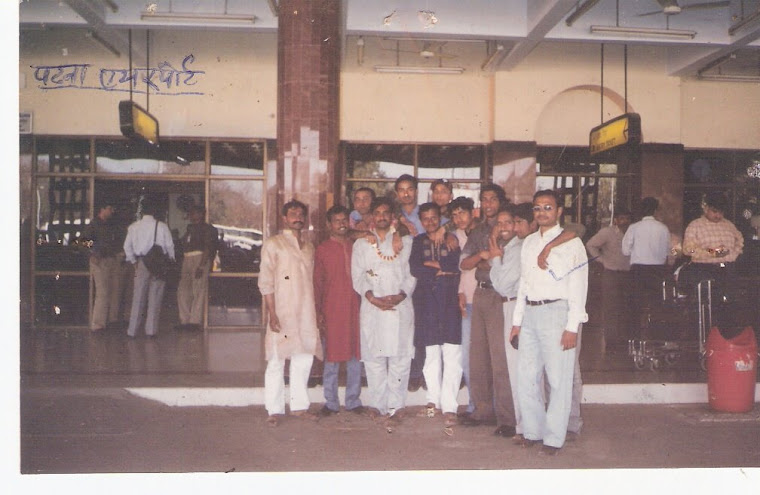
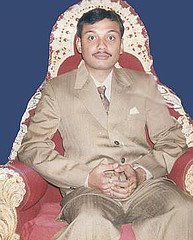






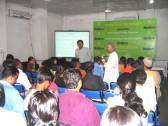


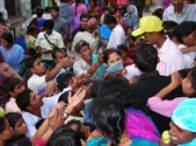









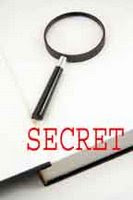
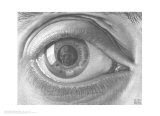
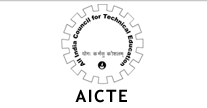
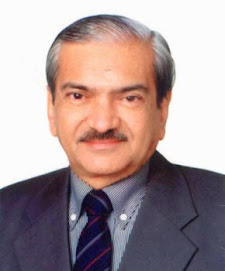



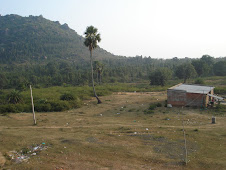


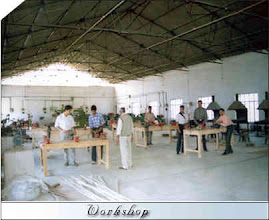






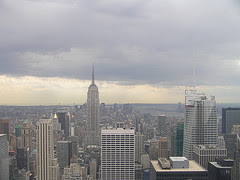
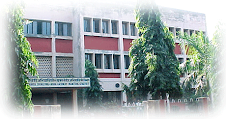




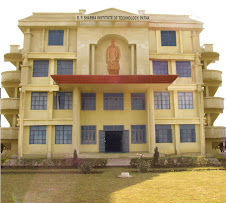








2 comments:
SEMI-PRIVATE PRISON MANAGEMENT IN INDIA
By
Er. Alok Kumar (9304313201)
James Mill, wrote on behalf of the East India Company: "India's traditional legal systems had to disappear in order to service the needs of a modern society based on competitiveness and the protection of individual rights and freedoms". The recent incidents of crime within several prisons of India reveal alarming dis-juncture between distributive justice and corrective justice. Punishment theory communicates to the offender the wrongs that he has done to the victim and to the community. In doing so, the offender should construct commitment towards morality in prison and come out of prison as a moral human being. Through punishment, states try to justify community and restore the conditions of sufficient security.
If we see the prison reform, we find that first committee to reform prison was established by T.B. Macaulay in 1836, to deter wrongdoers and save prisons from any `circumstances shocking to humanity'. The Report of the Indian Jails Committee 1919-20 focused on identifying the needs of prisoners, and provides educational, social and moral support to offenders. The Report of the All India Committee on Jail Reforms 1980-83 (AICJR) says, `Prisons in the country shall protect society and shall endeavour to reform and reassimilate offenders in the social milieu by giving them appropriate correctional treatment'. However, the Prisons Act of 1894 remains largely unchanged and is still the basic governing documented. However, the Prison Act of 1894 remains largely unchanged and is still the basic governing document. If we see the contemporary situation we find that the whole process of punishment is inadequate, particularly, prison management. The state recognises that a prisoner loses his right to liberty but maintains his residuary rights. The residuary rights includes the freedom of speech and expression, the freedom to become a member of an association, the right to acquire hold and dispose of property, the right to life and personal liberty, and the right to vote. The human being taken into judicial custody does not become a non-human being. Michel Foucault says, "Prison professionalised the offender when they came out of prison". The environment of prison in India is deplorable; The prisons barrack, are stuffed beyond capacity and human beings are made to live like animal in a cage. Even the high profile Tihar Jail has approximately 8,500 inmates as against the functional capacity of 2,273 [Bedi; 1998: 85]. According to Bureau of Police Research and Development, the total prison population in India is approximately (3.58 lakh) 0.03 per cent of the total population. Moreover, when the prisoners are freed, they continue to commit heinous crime, which reflects that the ultimate motive of punishment is not fulfilled. To some extent the jail management is accountable for it.
The food culture in prison is shockingly bad, majority of prisons do not give breakfast to the offenders. Low quality of food in unhygienic conditions is served for lunch and dinner. The barracks have no scope for ventilation, exhaust fans are exhausted and most of the time there is no electricity and water. During summer everything (walls, ceiling and floors) is hot and during winter it is cold. But one thing is common in summer and winter, i.e. the hot temperament of the officials. Worse situation is for the youthful offenders where Reformatory School Act of 1897 is violated, which directed that youthful offenders should be sent to a reformatory school and not a prison. The majority of the inmates belong to under-privileged section of society and along with them, bring a plethora of medical problems. Apart from common ailments they suffer from failing eyesight, decaying teeth, diabetes, hypertension, heart problems, malaria, cholera, gastroenteritis, tuberculosis and AIDS. But, the doctors hardly visit and the condition of female inmates is worse due to the absence of female doctors.
The deplorable living conditions, absence of the constructivist approach of the state and mismanagement of the prisons are few reasons for the rebellious and violent nature of prisoner. The situation in India is so alarming, that at times the inmates capture the jail. Such incidents have happened in Bihar (Chapra and Gaya jail) and Chattisgarh. The high profile jails of Bombay is volatile, as frequently fights occur between the inmates because the situation inside the jails is unjust. To make the situation just, Home Minister Shivraj Patil, while addressing the conference of ministers, secretaries, prison officials recently said, state must give due importance to prison reforms and assured Centre's support in this regard. Centre unveiling a gigantic prison modernization plan to set up separate high-security jails exclusively for sensitive prisoners like terrorists. High-security jails, will be fully equipped with electronic gadgets, video linkages and other modern communication system.
In the era of globalsiation were geographical difference has been reduced and socio-economic changes are occurring rapidly, new ways of dealing with the unjust situation in the jails in India must be considered. Several projects with the help of British institutions have been organised to raise awareness of human rights amongst prison officials, to improve prison management system, with special reference to promoting good practice and gender sensitivity in jail management but the results have been not fruitful. A comparative study with other developed countries must be made in order to minimise the dis-juncture between distributive justice and corrective justice. For this to happen we must look to the examples of other countries, who have introduced semi-private prisons.
Americans introduced the idea of private prisons in the 1980s, when Europeans hated the idea of managing the state's most sensitive functions by private companies. But gradually more countries have come to accept the idea that under the rules and regulation laid down by the state, private sector might work more efficiently. In Europe, the French came up with semi-private jails, in which the state employs only the guards. Fully or partially privatised prisons are planned in countries from Denmark to Hong Kong. Even the underdeveloped countries are trying new models, as they look for better, cheaper ways to accommodate prisoners. More than 17 per cent of Australia's inmates are held in private jails. Next comes Britain with 10 per cent and America 7 per cent. These markets are dominated by big prison-services firms which claims that private jails are better, cheaper and more accountable in both construction and management [The Economist, January 27, 2007].
Developing countries are trying other variations. In Latin America, prison management has been outsourced to private contractors and non-profit organisations. Proponents of private prisons in South Africa say that they are less crowded than state-run jails, and better equipped to give inmates education and vocational training. They are also better able to limit the influence of gangs and prevent bullying, sexual assaults and venereal diseases. The semi-private "European" model has been adopted elsewhere. Chile has opened three new semi-private prisons. In Brazil out of 27 states 6 have semi-private jails. If we see the case study of Brazil, the incidents of inmates violence in 2006 reveals that 20 small jails in Sao Paola state which is run jointly by state and local non-profit organisation, none was affected by the violence. Moreover, these jails have better results in lower "recidivism" which means lower rates of repeat offender.
On seeing the contemporary situation of jails in India, it will be desirable to go for semi-private jails. In India, implementing such a proposal can be contentious. Since few groups will argue, that big prison management companies, distort the criminal justice system. But on seeing the contemporary situation, right deal must be made with the private prison management companies in order to establish just situation in jails. This is also needed because of seemingly universal character of crime, hence, it becomes obvious that more piecemeal reforms are necessary. Moreover, globalization is bringing the countries and people of the world into one interdependent community, and with it a need to think and act globally, thus the experiences of other countries in prison-management can be replicated in India.
Er. Alok Kumar , Sr. Lecturer-R.I.T.Koderma,
Vinoba Bhave University Hazaribag,
Email: alokfromgaya@yahoo.com
Ph. 9304313201
http://eralokkumar.blogspot.com
http://eralokkumar.rediffiland.com
http://profalokkumar.blogspot.com
Websites :
http://www.aicte.ernet.in/
http://www.bitsindri.ac.in
http://www.bitmesra.ac.in
http://www.ritk.org
http://vbu.co.in
http://jharkhand.nic.in
Technical Colleges ( Jharkhand )
www.bitsindri.ac.in BIT Sindri , Dhanbad - Govt of Jharkhand
www.bitmesra.ac.in Birla Institute of Technology, Mesra , Ranchi
www.ismdhanbad.ac.in Indian School of Mines , Dhanbad
www.nitjsr.com National Institute of Technology , Jamshedpur
www.rvscet.com R.V.S. College of Engineering and Technology, Jamshedpur
www.birsainstitute.org Birsa Institute of Technology, Ranchi
www.geocities.com/nifftranchi National Institute of Foundry & ForgeTech., Ranchi
Governor- Jharkhand – State of Jharkhand , Raj Bhawan , Ranchi - 834001, .
Phone no: 0651 - 2283469 , Fax : 0651 – 22 Cell : 09810864830
P.S. - Mr. Amit Khare ( Sr. I.A.S.)
http://goidirectory.nic.in/
Vinoba Bhave University ,Hazaribag
( http://www.vbu.co.in )
Vinoba Bhave University , P B No. – 31 , Hazaribagh – 825301 , Jharkhand .
Vice – Chancellor : Dr. Mahendra Prasad Singh
Tel : +91 06546 – 264279 , Fax : 06546 - 262342
Pro – V.C. : Dr. Urao
Office : 06546 - 264724 , 262301 (O) , Fax : 06546 262342
Registrar : Shri S. P. Sinha
Tel : + 91 06546 264628 (O) , 270182 , 266322 (R) , Fax : 06546 264279
Examination - Controller : Dr. Mantu Kumar Singh
Mobile # 09431332889
College – Inspector : Dr. R.B.Singh ( Arts & Commerce )
Mobile # 09835197552
College – Inspector : Dr. Rana ( Science )
M0bile # 0
Dean - Student’s Welfare #
VBU - Professor’s Union #
Students Association #
Birsa Institute of Technology , Sindri ( Dhanbad )
Director : BIT – Sindri : ( Dean - Faculty of Engineering ) :
Dr. Shyam Kishor Singh
Tel : 0326 - 2350495 ( O ) , 0326 - 2350496 ( R )
Fax : 0326 - 2350495 , Mobile # 09431126328, 9939361551
Dr. S.C. Roy ( H.O.D. - Mechanical Dept.)
Mobile # 09835352391 , Tel : 0326 – 2253807
Prof. T.P.Sarkar ( Co - Ordinator - M.Tech Course)
Ph. # 0326 - 2350215
Prof. Mithilesh Kr.Singh ( CAD/CAM Lab - Mechanical Dept. )
Ph. # 09431646742
Mr. Anjani Kr. Singh ( Doing M.Tech in Heat & Mass Transfer)
Mob.# 09334828541
Mr. Santosh Kr. Singh ( Doing M.Tech in Production Engg.)
Mob. # 09334660618
Science & Technology Department ( Jharkhand )
1. Shri Chandra Prakash Choudhary , Hon’ble Minister, Sc. & Tech.# 2490693 (O)
2. Shri Ashok Kumar Basu, Principal Secretary, Sc. & Tech. # 2490070 (O), 2490208 (F)
3. Shri Arun Kumar, Director, Sc. & Tech.#
4. Smt. Pushpa Marandi, Deputy Secretary, Sc. & Tech. #2491035 (O)
5. Shri M. P. Singh, Under Secretary, Sc. & Tech. # 2490613 (O)
6. Shri Devendra Mishra, Under Secretary, Sc. & Tech.# 2491035 (O)
7. Shri Gyanendra Kumar, P.S. to Minister, Sc. & Tech. # 2490693 (O)
8. Shri Udai Kumar Singh, Assistant Director, Sc. & Tech.#
9. Shri Dipanker Shree Gyan, Officer on Special Duty, Sc. & Tech.#
10. Shri R. N. Gupta, Project Director, S.P.F.U. # 2532118 (O)
11. Shri Awadh Bihari Singh, Section Officer, Sc. & Tech.#
12. Shri Natwa Hansda, Examination Controller # 2400841 (O)
13. Shir Onkar Nath, P. A. to Secretary, Sc. & Tech . #
Department of Industries(Jharkhand)
Mr. Sudhir Mahato - Hon'ble Minister of Industries
Mobile # 9334803639 /9431117177
Mr. Santosh Kumar Satpathy, IAS - Secretary, Dept. of Industry
Tel # (0651) 2490746
Dr. Rahul Kumar Purwar, IAS - Director of Industries & M.D. RIADA
Tel #(651) 2491844
Mr. R.BaskiDy. - Director of Industries
Tel # (0651) 2491844 , Fax: (0651) 2491884
A.I.C.T.E. ( All India Council Of Technical Education )
http://www.aicte.ernet.in/
Prof. R.A. Yadav , Chairman - AICTE
Phone # 011- 23392553, 23392557 (F), E-mail # chairman@aicte.ernet.in
Sh. Bharat Ram, Private Secretary- Chairman,
Ph# 011- 23392553, E-mail# bharat@@aicte.ernet.in
AICTE ‘s Address : I.G. Sports Complex, I.P. Estate, New Delhi-110 002
AICTE EPABX Numbers : 011 - 23392506, 63, 64, 65, 68, 71, 73, 74, 75
AICTE Fax Number : 011 - 23392554
The Regional Officer – A.I.C.T.E.,
Eastern Regional Office,
College of Leather Technology Campus ,
L. B. Block, Sector – III , Kolkata – 700 091
National Board of Accreditation ( N.B.A. )
Website : www.nba-aicte.ernet.in
All India Council for Technical Education,
NBCC Building, Eastern Tower, 4th Floor,
Pragati Vihar, Lodhi Road, New Delhi-110003.
E-mail - krishprasad@gmail.com
Phone No. - 91 - 011 - 24369624 , Fax No. -91 - 011 - 24369624
NBA – AICTE EPABX Numbers : 24369619, 20, 21, 22
Contact : e-mail @aicte.ernet.in
QUALITY ASSURANCE BUREAU
qa@aicte.ernet.in
Prof. Prasad Krishna -- Advisor-I
Ext. 213 , 24369624 E-mail : krishnprasad@gmail.com
Ms. Sangeeta Chainani - PA to Advisor
(DEO-A) ,214(D) 24369624 ( Telefax )
Dr.Tabassun Naqvi Haider - Director
Ext. 204 , 24369623, 24369633 ( F )
E-mail : haidertabassum@rediffmail.com
Mr. Munish Garg - Asstt. Director
Ext. 230 , Direct No. - 24369633
E-mail : munishgarg72@yahoo.com
http://www.cdu.edu.au/pmd/documents/Workforce_Planning_Users_guide_000.pdf
The Team carries out physical verification of infrastructure facilities, records, interviews faculty, staff, students, alumni, industry and any other activity deemed necessary and ensure transparency.
For More details : http://www.nba-aicte.ernet.in/about.html
The Institutions of Engineers (India) - www.ieiindia.org
Website for Engineering Colleges in India :-- http://indiaeducation.net/Engineering/
National Institute of Foundry and Forge Technology
Address : --N.I.F.F.T , Near Airport Road , Hatia , Ranchi – 834003, Jharkhand
Website :-- http://www.geocities.com/nifftranchi/ ,
Phone : 0651 – 2290859
University - RANCHI UNIVERSITY (under Ministry of HRD )
List of Council Members of A.I.C.T.E.
PROF. R.A.Yadav , Chairman - AICTE, New Delhi -110 002
THE SECRETARY (EDUCATION), Department of Secondary and Higher Education ,
Ministry of H.R.D. , Govt. of India , Shastri Bhawan , New Delhi - 110 001
PROF. S.S. KATIYAR, Chairman-North Regional Committee- AICTE,
Vice-Chancellor-Chhatrapati Shahu ji Maharaj University,Kalyanpur,Kanpur 208 024
PROF. ASHOK RANJAN THAKUR , Chairman - All India Board of Vocational Education
(AIB-TE) , Vice - Chancellor West Bengal University of Technology, Kolkata (W.B.)
PROF. P.B. SHARMA (Chairman), All India Board of Under Graduate Education in Engineering & Technology (AIB-UGE&T) ,
Principal - Delhi College of Engineering , Bawana Road, Delhi 110 042
PROF. ABAD AHMED (Chairman) , Chairman-All India Board of Management Studies (AIB-MS)
20, Cavalry Lines ,University of Delhi, New Delhi - 110 007
THE SECRETARY, Govt. of India , Department of Science & Technology,
Technology Bhavan, New Mehrauli Road, New Delhi - 110 001
\
University Grants Commission (U.G.C.) - www.ugc.ac.in
Bahadur Shah Zafar Marg , New Delhi , Pin - 110 002, India
E-mail: webmaster@ugc.ac.in , ifc@aicte.ernet.in
EPABX Nos. : 23232701/23236735/ 23239437/ 23235733/23237721/23232317/ 23234116/23236351/23230813/ 23232485
UGC reception : 011- 23239627
Fax. Nos. : 011- 23231797 / 23232783 23239659/ 23231814
For Any Queries from U.G.C., please Contact :
Information About U.G.C. Recognized Colleges.
EPABX Nos +Ext:414
CPP-I
Information About UGC recognised Central, State and Deemed Universities.
EPABX Nos +Ext:339
CPP-II
Information About UGC specified Degrees.
EPABX Nos +Ext: 317
NET/SA
Information About NET / Selection & Awards
24115419/24113447/24117095/24115426
MRP
Information About Major and Minor Research Projects (Science)
EPABX Nos +Ext: 401
MRP
Information About Major and Minor Research Projects (Humanities)
EPABX Nos +Ext: 411
Ministry of HRD (Education) - www.education.nic.in
National Council for Teacher Education - www.ncte-in.org
Engineering :
• All India Council of Technical Education - www.aicte.ernet.in
• The Institutions of Engineers (India) - www.ieiindia.org
• IIT-Kharagpur - www.iitkgp.ac.in
• Bureau of Energy Efficiency - www.bee.gov.in
• Distance Education Council for distance education in Engineering - www.dec.ac.in
• Joint Entrance Examination (Orissa) - www.jeeorissa.gov.in
Academics :
• University Grants Commission - www.ugc.ac.in
• Central Board Of Secondary Education - www.cbsc.nic.in
• Delhi University - www.du.ac.in
• Jawaharlal Nehru University - www.jnu.ac.in
• National Council for Teacher Education - www.ncte-in.org
• National Council for Educational Research & Training - www.ncert.nic.in
• Ministry of HRD (Education) - www.education.nic.in
Aviation :
• Directorate General of Civil Aviation - www.dgca.nic.in
• IATA training - www.iata.org
• Ministry of Civil Aviation - www.civilaviation.nic.in
• Indira Gandhi Rashtriya Uran Akademi - www.igrua.gov.in
Banking :
• Reserve Bank of India - www.rbi.org.in
• State Bank of India - www.statebankofindia.gov.in
• Panjab National Bank - www.pnbindia.gov.in
• Corporation Bank - www.corpbank.gov.in
Civil – Services:
• Union Public Service Commission - www.ugc.gov.in
• Staff Selection Commission - www.ssc.nic.in
• Department of Personal & Training - www.dopt.nic.in
Defence :
• National Defence Academy - www.nda.nic.in
• Indian Army - www.indianarmy.nic.in
• Join Indian Army - www.joinindianarmy.nic.in
• Indian Air Force - www.indianairforce.nic.in
• Indian Navy - www.indiannavy.nic.in
Finance :
• The Institute Of Chartered Accountant – www.icai.org
• The Institute Of Company Secretaries of India – www.icsi.edu
• National Stock exchange of India - www.nseindia.gov.in
• Bombay Stock exchange - www.bseindia.gov.in
• Indian Institute of Banking & Finance – www.iibf.org.in
• Indian Institute of Statistical Institute - www.isical.ac.in
Hospitality :
• Incredible India - www.incredibleindia.org
• Ministry of Tourism - www.tourisminindia.gov.in
Information Technology :
• NASSCOM - www.nasscom.in
• Ministry of IT - www.mit.gov.in
• DOECC - www.doeacc.edu.in
• Centre For Development of Advance Computing - www.cdac.in
• Indian Institute of Technology Madras - www.iitm.ac.in
Law :
• Supreme Court of India - www.supremecourtofindia.nic.in
• Ministry of Law & Justice - www.lawmin.nic.in
• National Commission for Women - www.ncw.nic.in
• Central Administrative Tribunal - www.cgat.gov.in
Library Science:
• Raja Rammohan Roy Library foundation - www.rrrlf.nic.in
• National Archives Of India - www.nationalarchives.gov.in
Management :
• Indian Institute of Management, Calcutta - www.iimcal.ac.in
• Indian Institute of Management, Ahmedabad - www.iimahd.ernet.in
Media :
• Indian Institute of Mass Commission - www.iimc.nic.in
• Publications Division - www.publicationsdivision.nic.in
• Doordarshan - www.ddindia.gov.in
• Directorate Of Advertising and Visual Publicity - www.davp.nic.in
• Press Information Bureau - www.pib.nic.in
• Ministry of Health & Welfare - www.mohwf.nic.in
• Department of Ayurveda, Yoga & Naturopathy, Unani, Siddha and Homoeopathy (AYUSH) - www.indianmedicine.nic.in
• National Aids Control Organisation - www.nacoonline.org
• Armed Forces Medical College - www.armedforces.nic.in
Railways :
• Indian Railways - www.indianrail.gov.in
• Indian Railways - www.indrailways.gov.in
• Ministry of Railways - www.railnet.gov.in
• IRCON - www.ircon.org
• Indian Railway Catering and Tourism Corporation Ltd. - www.irctc.co.in
Employment News : http://www.employmentnews.gov.in/article.html
Uttar Pradesh Technical University
Institute of Engineering & Technology,
Sitapur Road , Lucknow ( U.P.)
Tel # 0522-2732193 (O), 2732185 (Fax)
Azeezulla Baig IAS (Rtd) - Administrator
Islamic Mission Of India ( Regd. )
Islamiah Institute Of Technology , Bangluru
( Affiliated to VTU, Belgaum, Approved by AICTE, New Delhi)
Opp. Meenakashi Temple, National Park Road, Bangalore 560076 ,Karnataka
Phone No. 080-2648 1774, 2648 4780 Fax : 080-2648 3271
BIRLA INSTITUTE OF TECHNOLOGY Mesra ,
Ranchi, Jharkhand - 835215
Phone No. # (0651) 2275200, 2276002, 2276004 , Fax No. # 0651- 2275401
Website: www.bitmesra.ac.in
Personal Note
Hmm few words about me... I love joking and I feel horrible when someone next to me is sad.
It's hard to write... so I'll just write down from the list that my friends at school wrote about me.
My friends think I am: "good, generous, angelic patience (I'd say ONLY FOR CHILDREN IT'S UNLIMITED ;) ), loveable, helpful, indulgent, self-confident, resolute, intelligent, funny, brave, crazy, hilarious, cautious, clever, smiling, consistent...
I only have to say that sometimes I can be really mean :) but I'm trying to change this one.
Interests
Dancing
Movies/Cinema
Music & Concerts
Nightclubs
Restaurants/Eating out
Shopping
Traveling
Favorites
Film Dirty Dancing;) & Notebook
Type of music all kinds :) depends when...
Song it changes every week;) now: Hate that I love you - Rihanna
Band/Group I don't have any special...
Person hard to say, I just like people
Quote Only boring women have totally clean houses ;)
Place to party any place where the music is turned on
Place to relax Miroszewo
Place to holiday Bieszczady
Book any of Paulo Coelho & Jodie Picoult
Sport dancing dancing dancing - if you call it sport ;)
Laboratory Equipment and Scientific Instruments Equipment and consumables related to and used in clinical and research laboratories for the preparation, separation and analysis of samples.
Analytical Instruments :
A wide classification of instruments that are used to analyze material samples, or their components, and record data specific to the application.
Chromatography Instruments :
Instruments used to separate chemical mixtures, carried by liquids or gases, into components as a result of differential distribution of the solutes as they flow around or over a stationary liquid or solid phase.
Clinical and Research Labware :
Any instrument that can be used in a clinical or research laboratory setting for the purpose of processing or analysis.
Environmental Instruments :
A wide variety of instruments for measurement and testing of changes in environmental conditions, including radiation (both wavelength and as a hazardous emission), temperature, moisture, dew point, smoke, dust, opacity, light, weather, and water quality.
Filtration and Separation Products :
Processing equipment such as centrifuges, clarifiers, and several filter technologies used to filter or separate media of different materials or sizes.
Imaging Equipment :
Sensors and instruments for capturing images for evaluation and analysis, including images in the visible, infrared, and ultraviolet wavelengths.
Dimensional Metrology :
Equipment for metrology, inspection and quality control of dimensional features.
Lab and Test Equipment :
Instruments used to test, analyze, control, calibrate, display and record data in laboratory and other testing situations.
Laboratory Air Handling Equipment :
Laboratory air handling equipment is used to protect specimens and laboratory staff from contamination. Products include fume hoods, biological safety cabinets and clean benches.
Laboratory Safety Equipment :
Equipment used in a laboratory setting to protect workers from harmful gases and chemicals.
Laboratory Thermal Processing :
Autoclaves, furnaces, ovens, heating mantles, hot plates, incubators, refrigerators and freezers and and other equipment for laboratory heating or cooling applications.
Labware Consumables :
Laboratory supplies that are used in mass quantities and often need replacement; including glassware, chemicals, test kits, etc.
Liquid Handling Equipment
Products that are used in the moving, monitoring, sealing, transporting, processing, sensing, and/or controlling of any liquid substance.
Microscopes :
A microscope is an instrument capable of producing a magnified image of a small object.
Recorders and Loggers :
Devices that are used to acquire and retain data (digital or analog) from sensors or other sources.
Sample Preparation and Wet Chemical Analysis :
Processes and instruments used to prepare and analyze wet chemical samples in a laboratory.
Separation Techniques :
Products using various methods, including electrophoresis, chromatography and titration, to separate the components of a mixture.
Spectrometers and Analytical Photometers :
Any instrument used for measuring wavelengths of light spectra, optical or atomic emissions for the analysis of samples.
Water Quality Instruments :
Instruments and sensors designed to test water for a variety of chemical and biological agents as well as clarity, rate of movement, etc.
Material Testing
Our material testing engineers possess an extensive equipment background which enables them to draw upon industry standards and use best practices testing techniques of material testing services:
- customize test methods to meet specific applications
- measure mechanical properties,
- conduct material characterization analysis,
- aid in materials selection,
- add value to quality initiatives
- conduct product performance tests.
The information that an engineer compile from these tests help you to select the optimal material for your specific application. Engineer uses the following material testing services:
Compression Testing
Strength Testing
Fatigue Testing
Flexural Testing
Shock Testing
Tensile Testing
Vibration Testing
Puncture/Tear Testing
Tensile Testing :
Tensile testing involves pulling on a specimen material to determine the relationship between force and stretch, and the force at failure. This mechanical testing method is performed on virtually any kind of material: metals, plastics, paper, film, foil, wire, cordage etc.
There are many material properties that can be determined by tensile testing. Among the most common are:
Modulus
This is the measurement of the stiffness of a material - how much it deflects elastically for a given load.
Elongation
This is the total elastic and plastic (irreversible) stretch of the material before it breaks.
Ultimate Load
This is the maximum force that the specimen will accept before failure.
Yield Strength
This is the stress (load/area) at which a material begins to deform plastically.
Tensile testing can be performed on either finished products or specially cut or formed samples.
Careful consideration must be given to such issues as speed of testing, grip design and application, load cell selection, and others, to yield accurate and credible results.
Compression Testing:
Materials behave differently in compression than they do in tension, so it can be important to perform mechanical tests which simulate the conditions the material will experience in actual use.
Compression testing is typically used to test plastics, foam, rock, concrete and asphalt. It is rarely used to test metals.
Compression Testing is also used in product testing to evaluate the behavior of finished products. For example, a hypodermic needle may be pushed into a material to see how easily it penetrates and to assess its sharpness.
Fatigue Testing What device or material are you interested in fatigue testing?
Orthopaedics
Cardiac Stents
Other
Fatigue testing :
It is used to determine how many load cycles a material can sustain or the failure load level for a given number of cycles.
The results of fatigue testing vary dramatically depending on the material. For example, most steels and aluminum alloys behave very differently under fatigue. Steel typically has a fatigue threshold, which means that if it is tested at loads lower than the threshold, it will never break. Most aluminum alloys do not have a fatigue limit, so it is more difficult to judge when they will break. Even at a small load, most aluminum alloys will fail after a sufficient number of cycles.
Plastics (Polymers) are very sensitive to strain rate, or the speed of testing. Testing plastics at a higher rate will lead to different results than testing them at a low speed. Similarly, plastics are temperature sensitive, meaning that they behave very differently at high temperatures than at low temperatures.
Fatigue testing is very common in the automotive and aerospace industries. This type of mechanical testing is performed using very simple sinusoidal load cycles, or may include very complex reproductions of actual service life load profiles.
Package Strength Testing :
In order to produce acceptable packaging on a daily basis and throughout a determined shelf life validation, it is important to evaluate the strength characteristic. Not only does strength play a key role in a shelf life validation, but it also lets the medical device manufacturer determine that their process for sealing packages is staying consistent to their predetermined specification set in the process validation. There seems to be some confusion within the medical device industry regarding the strength of a package as opposed to the integrity of a package. Package strength concerns the force required to separate two components of the package. It could be the force to separate two flexible components of a pouch, or a flexible lid and a thermoform tray. These forces may be measured in pounds per inch width, as in the seal/peel test; or in pounds per square inch, as in the burst test method. Alone, these tests of package strength values do not necessarily prove the integrity of the entire package. In fact, the seal width that was actually measured may be within the strength specification but may have a channel leak that could breach the package and negate integrity.
The main culprit for poor package strength is the sealing parameters. If a proper process validation of the sealer is not performed, the medical device manufacturer can expect failure.
Post a Comment